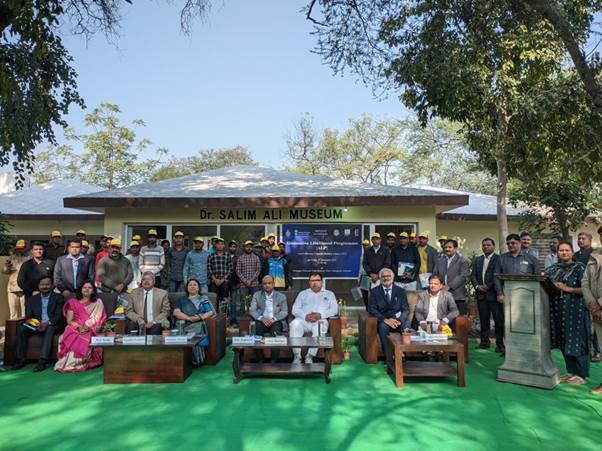- The Indian government has established the ‘Amrit Dharohar Capacity Building Scheme’ 2023 to transform ecologically sensitive wetlands classified as Ramsar areas into sustainable tourist attractions.
- This effort aims to create jobs while also improving the livelihoods of local communities.
Amrit Dharohar’s Capacity Building Scheme 2023
- Launched in 2023-24 Budget: This scheme was included in the budget for 2023-24.
- The goal is to promote the conservation qualities of Ramsar Sites while also producing jobs and supporting local livelihoods.
- Enhancing Livelihoods: The project aims to improve the livelihoods of local communities by capitalising on the nature-tourism potential of Ramsar Sites nationwide.
- It is being executed in partnership with various Central Government departments, State wetland administrations, and a network of formal and informal institutions and individuals dedicated to conservation.
About Ramsar sites: International Significance
- Ramsar sites are wetlands declared as internationally important by an environmental treaty signed in 1971 in Ramsar, Iran, and overseen by UNESCO.
- Waterfowl Habitat: They are recognised for their importance as vital waterfowl habitat.
- Ramsar promotes national and international initiatives to conserve wetlands and use natural resources sustainably.
- India has 75 Ramsar sites, demonstrating its dedication to wetland conservation.
Pilot Projects and Skills Development
- Identified Sites: The mission has identified 16 Ramsar sites across India.
- Pilot Projects: The initial pilot phase will focus on five wetlands: Sultanpur National Park (Haryana), Bhitarkanika Mangroves (Odisha), Chilika Lake (Odisha), Sirpur (Madhya Pradesh), and Yashwant Sagar (Madhya Pradesh).
- The Alternative Livelihood Programme (ALP) provides participants with training to investigate alternative livelihood alternatives.
- Paryatan Navik Certificate: Additionally, a boatman certification programme is available to tourism service providers, providing a qualified crew.
Wetlands: Their Ecological Significance
- Natural wetlands are known as the “earth’s kidneys” because of their ability to filter toxins from flowing water.
- Wetlands provide critical ecosystem services such as biodiversity maintenance, water flow regulation, and habitat for a variety of species.
Source: https://www.thehindu.com/sci-tech/energy-and-environment/centre-to-focus-on-developing-ramsar-wetlands-for-nature-tourism/article67759192.ece#:~:text=The%20Amrit%20Dharohar%20initiative%2C%20part,opportunities%20and%20supporting%20local%20livelihoods.

